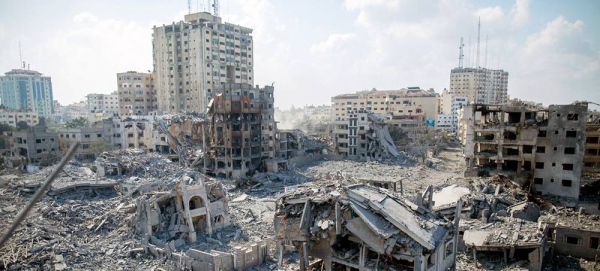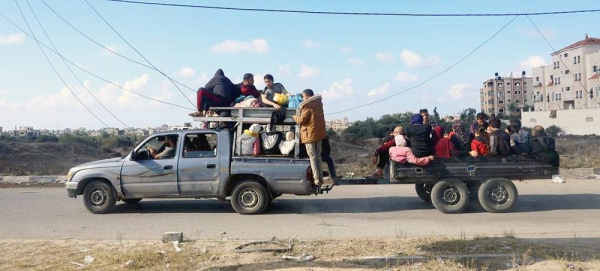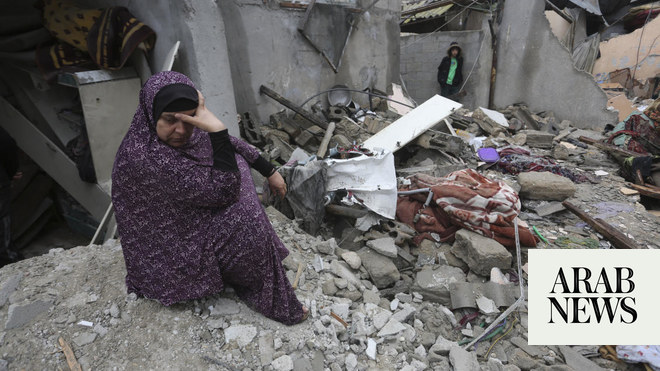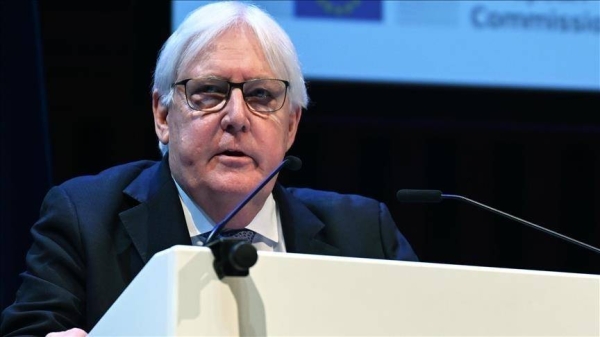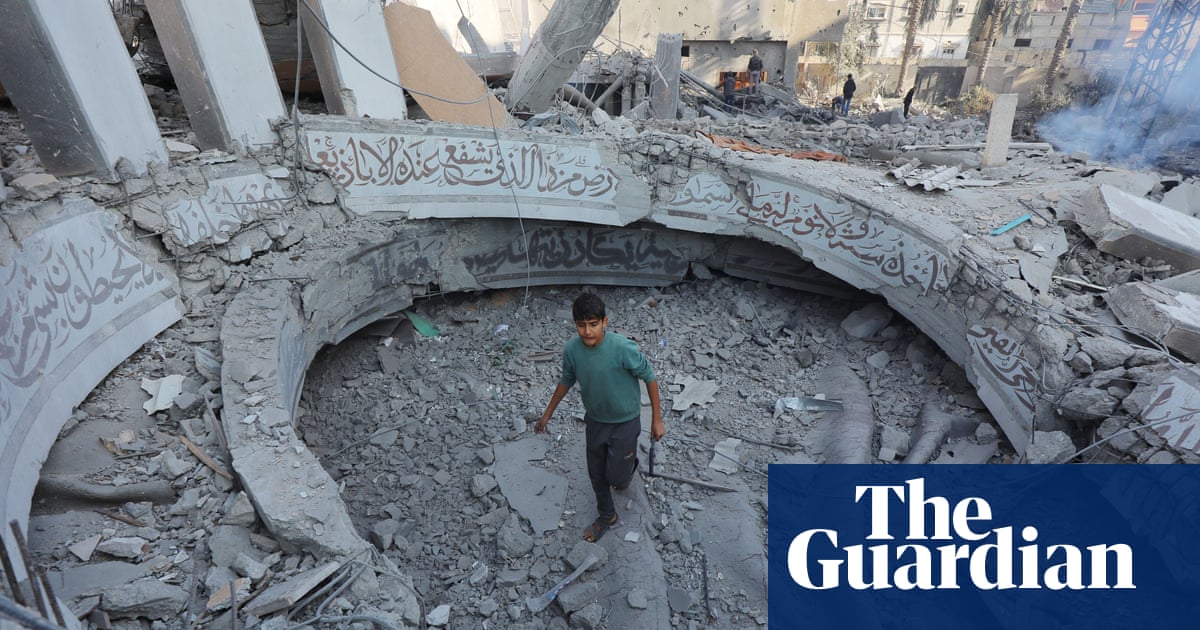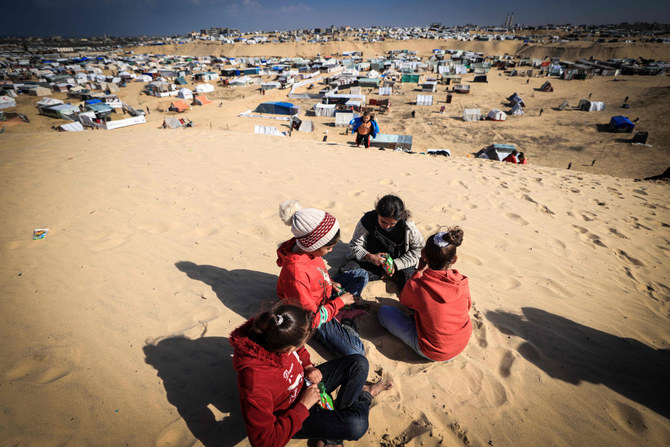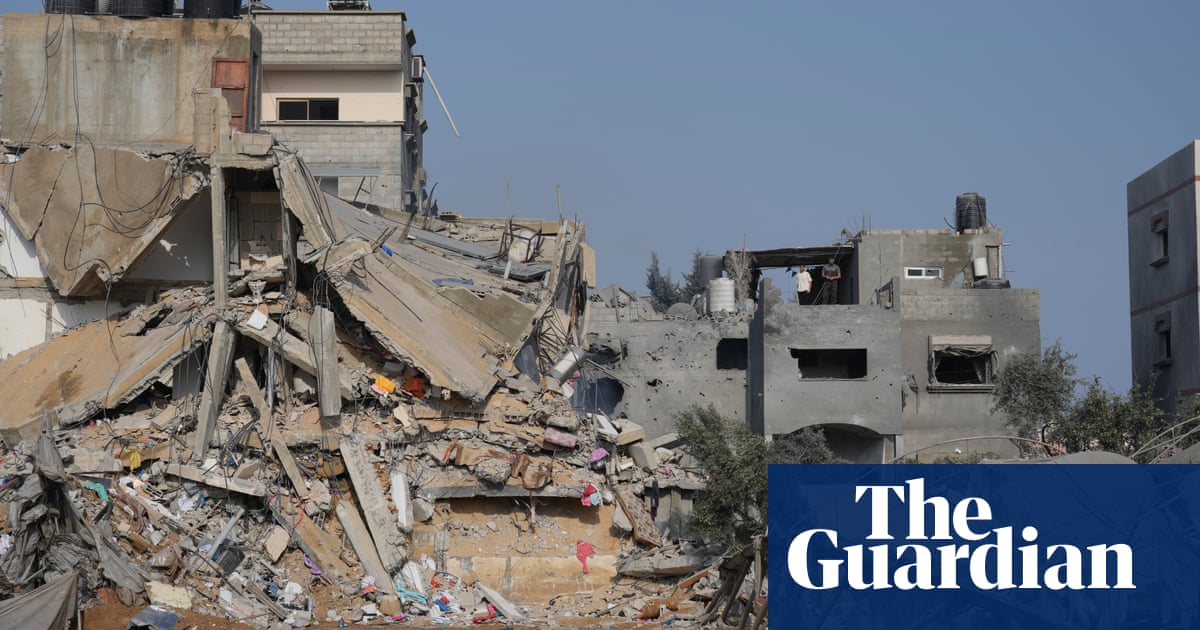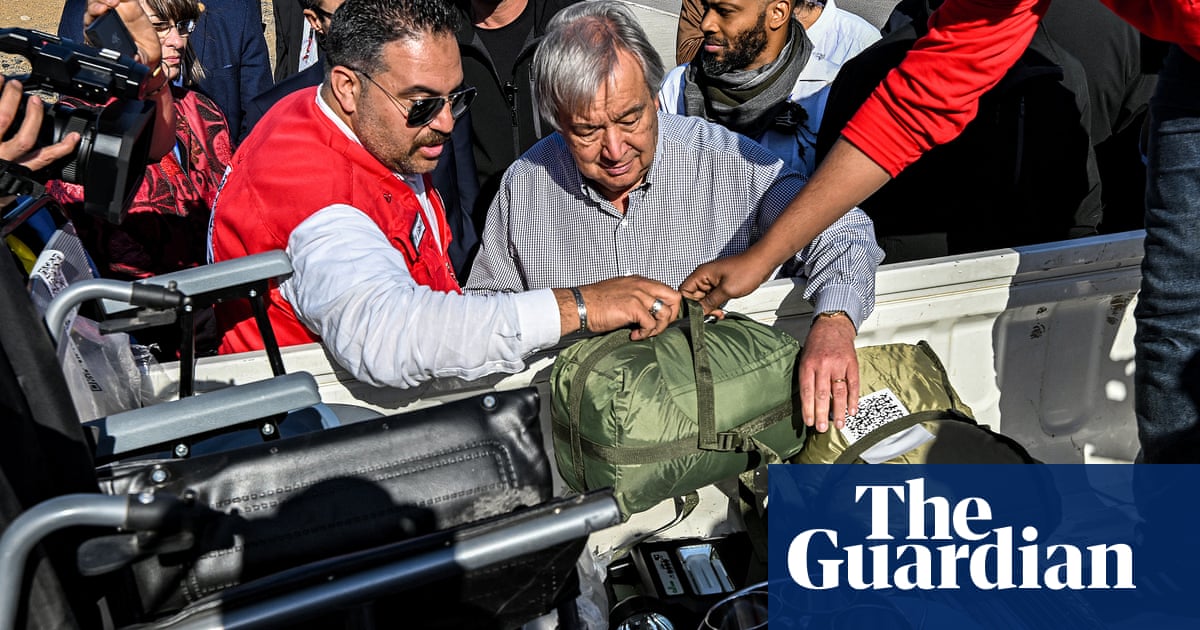
António Guterres, the UN secretary general, has again called for a humanitarian ceasefireduring a visit to Egypt’s border with Gaza amid urgent efforts to avert famine in the territory after more than five months of devastating war.
“Palestinians in Gaza – children, women, men – remain stuck in a non-stop nightmare,” Guterres said. “I carry the voices of the vast majority of the world who have seen enough.”
Guterres arrived on Saturday in al Arish in Egypt’s northern Sinai, where much of the international relief for Gaza is delivered and stockpiled.
“Here from this crossing, we see the heartbreak and heartlessness of it all,” Guterres added. “A long line of blocked relief trucks on one side of the gates, the long shadow of starvation on the other,” he said. “That is more than tragic. It is a moral outrage.”
The World Food Programme has said Gazans are “starving to death”, with famine projected by May in northern Gaza without urgent intervention.
There has been sharp and widespread criticism of Israel, which is accused of obstructing aid with cumbersome bureaucracy, arbitrary denials of permission and a refusal to open major access points to Gaza that would allow rapid flows of assistance.
According to Sinai’s regional governor, Mohamed Shusha, 7,000 trucks were waiting in Egypt to deliver aid to Gaza, but inspection procedures demanded by Israel had held up the flow of relief.
Israel denies the charges, with spokespeople saying there are no limits on the entry of food, water, medicine, or shelter equipment into Gaza.
Aid agencies also say that the levels of destruction, a breakdown of civil order and the military operations in much of the territory make delivery of humanitarian assistance extremely difficult.
On Saturday, Israeli military officials claimed that more than 170 militants have been killed during a six-day raid at al-Shifa hospital in Gaza City.
Israeli troops moved into the sprawling medical complex on Monday in a major operation aimed at rounding up fighters and leaders from Hamas and other militant factions who military officials claimed were based there.
“Thus far, the forces have neutralised in excess of 170 terrorists within the hospital vicinity, interrogated more than 800 suspects and uncovered numerous weapons and infrastructure associated with terror activities,” the Israeli Defense Forces (IDF) said.
The “precise” operation is being conducted without harm to civilians or medical personnel, the IDF said.
The UN’s humanitarian agency, OCHA, said “health workers have been among those reported arrested and detained”. Hamas officials said casualties and detainees were not combatants but rather patients and displaced individuals, and they accused Israel of war crimes.
Mohammed, 59, who lives a short walk from the Shifa complex, told Agence-France Presse he had seen “many bodies” in the streets, buildings on fire and tanks blocking the roads.
“I feel that Gaza has become worse than the fires of hell,” he said.
On Friday, a US resolution urging a ceasefire in Gaza linked to a hostage deal was vetoed by Russia and China in the UN security council, extending a five-month impasse in the international body over the Israel-Hamas war.
The war was triggered in October when Hamas killed 1,200 people, mostly civilians, in a surprise attack in southern Israel. The militant Islamist organisation also abducted about 250.
The military offensive launched by Israel in the aftermath of the October attack has so far killed more than 32,000 in Gaza, mostly women and children, according to local health authorities. A relentless bombardment has reduced swaths of the territory to rubble, displacing more than 80% of the population.
Eleven council members voted for the ceasefire resolution; Russia, China and Algeria voted against it and Guyana abstained. As permanent security council members, the Russian and Chinese votes counted as vetoes.
A vote at the UN security council on a new text calling for an “immediate” ceasefire was postponed to Monday, diplomatic sources said.
Benjamin Netanyahu, the Israeli prime minister, vowed to go ahead with plans for an offensive into Rafah, Gaza’s southernmost town, despite opposition from the US and many other powers.
“We have no way to defeat Hamas without entering Rafah and eliminating the remnant of the battalions there,’’ Netanyahu said. “I hope we would do this with US support but – if necessary – we will do it alone.”
Humanitarian agencies describe the prospect of such an assault into a town crowded with more than 1 million people displaced as “terrifying”. Rafah is also a key logistical hub for aid operations in Gaza.
After a week-long truce in November, where there was an exchange of hostages for Palestinian prisoners in Israeli jails, 130 hostages remain captive in Gaza, of whom between 30 and 50 are thought to be dead.
A new round of indirect talks on a further similar exchange and a potential six-week ceasefire is under way in Qatar.
On Friday, nearly 600 relatives of 81 hostages appealed to the US president, Joe Biden, to urge Netanyahu to negotiate a deal for their release.
“We are increasingly frustrated and concerned by the absence of consistent communication and dedication from the Israeli prime minister and the war cabinet to the cause of freeing hostages,” the unprecedented letter said.




